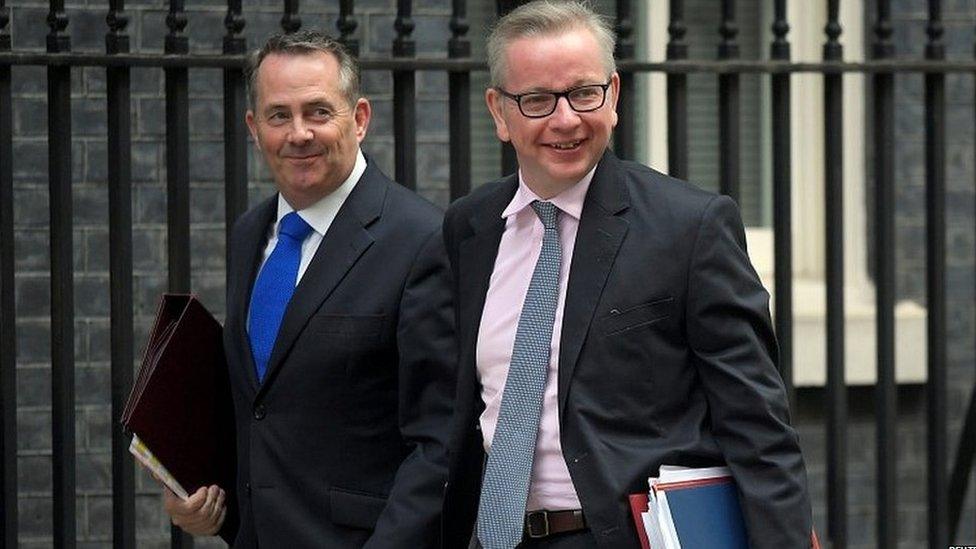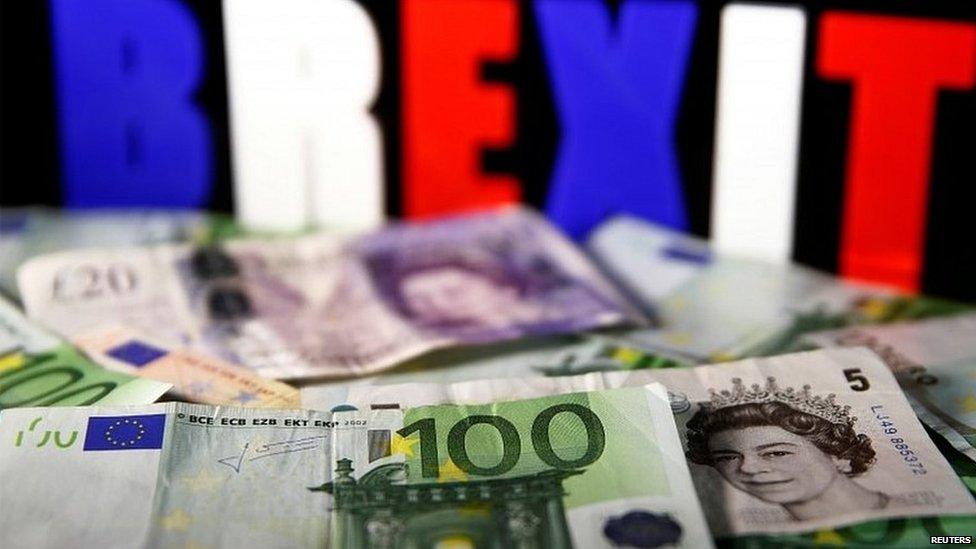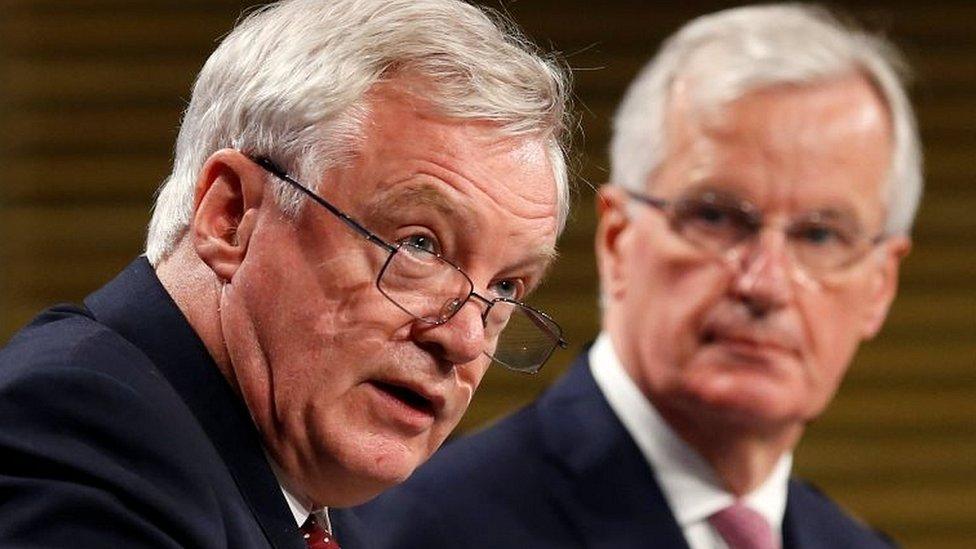Brexit: Is cabinet now united behind transition plan?
- Published

Leading Brexiteers have said they are not opposed to a period of transition or implementation
The government and the cabinet "is united".
Now, on the surface, these words from Michael Gove shouldn't be surprising. A minister wouldn't advertise disunity.
The surprise though is that - as one of the most prominent Leave campaigners - he was talking about an implementation period post-Brexit which could last for an unspecified amount of time.
Insiders say his arrival at the Department for the Environment, Food and Rural Affairs and dealing with the powerful farming lobby may have influenced his view.
Some of the most prominent Remain ministers have been expressing relief - tinged in one case with just a hint of triumphalism - that they think in recent weeks that they have managed to sell the idea of a soft landing - or as some say "no cliff edge" - after the UK leaves the EU in 2019 to some of their more sceptical colleagues.
So much for unity. Where do differences still lie?
It was interesting that, in answering my question on whether freedom of movement would continue under an implementation period, that Michael Gove didn't rule this out. Migration, he argued, would be decided by the needs of the economy.
But for how long? The tectonic plates may have moved on a transitional deal but its duration is where cabinet fault lines persist.
Liam Fox has been pretty clear he doesn't want to contemplate anything more than two years.
As one minister put it - he has waited forty years to leave the EU so two more won't matter.
But anther prominent cabinet Brexiteer told me he thought it would be a "disaster" if the implementation period hadn't concluded by the assumed date of the next election in 2022 while others have talked about anything up to a four year period.

Business has said a "cliff-edge" change in regulations and procedures must be avoided
Then what form will any transition take?
Could there be temporary membership of the European Economic Area? Some leavers might be suspicious that temporary would become permanent.
Should we stay in the customs union a bit longer until we hammer out a bespoke deal post Brexit?
The EU is unlikely to get the clarity it seeks until there is clarity around the cabinet table.
So while some Remainer ministers I have spoken to this week were upbeat, relaxed and chipper - and believe that British business is making its influence felt - many issues remain unresolved.
And, of course, I use the term 'Remainer" historically - the cabinet is also united on leaving the EU but the question is how.
There has been talk of soft, hard and clean Brexits. Increasingly another word has entered the lexicon.
David Davis uses it. Michael Gove used it today. Expect to hear more of it. Pragmatic. That's now the goal - a pragmatic Brexit. And that necessarily means compromise at cabinet level as well as with the EU.
- Published21 July 2017
- Published21 July 2017
